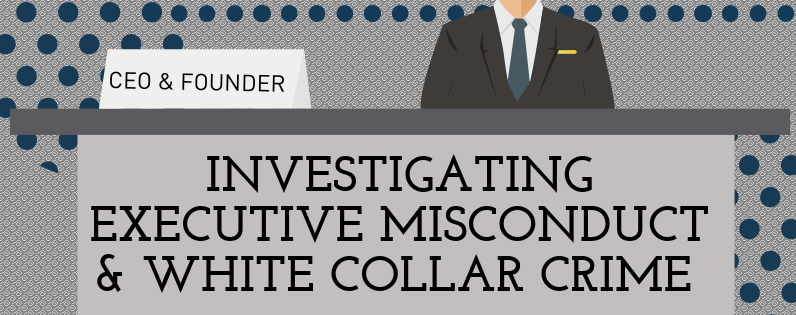Does Your Corporation Need a Culture Audit?

When it comes to your workplace culture, you don’t know what you don’t know… We know the importance of conducting independent investigations when an internal crisis arises in a business or organization. While some companies are focusing on revising their company culture in order to improve responses to internal crises, others are seeking an ounce […]
A Nonprofit Background Check Can Save Your Organization
When putting together a team to supervise your money, it helps to know who you’re dealing with… Nonprofit organizations can do great work in promoting community growth, providing assistance to those in need, and raising money to fund research in the name of bringing solutions to some of the globe’s most comprehensive issues. These organizations […]
Active Shooter Events in the Workplace
Virginia legislation placed on notice following the active shooter event in Virginia Beach. In what has seemed like a death from a thousand cuts, the mass active shooter event that occurred on Friday, May 28th at a municipal building in Virginia Beach has inspired action on the part of state leadership. According to USA Today, […]
Internal Investigation Teams vs. Private Investigators
Corporations Are Expanding Their Internal Teams… Contextual events like the #MeToo movement and other public allegations of employee misconduct have many companies throughout the nation reevaluating their investigative needs when it comes to internal conflicts. Among those companies are powerhouses like Microsoft. On May 10, 2019, Satya Nadella, the Chief Executive Officer of Microsoft, announced […]
Surveillance cameras in public spaces are getting smarter…
CCTV Cameras in some major US cities are capturing private citizens’ faces in real-time. Surveillance capitalism in the United States has been steadily evolving in the United States over the last ten years. Since the invention of social media and the rise of ubiquitous outdoor CCTV surveillance systems in major cities, private individuals are becoming […]
Lauth & Internal Investigations
We can provide your business with a solution to their corporate or internal crisis… For businesses, a corporate crisis is not just a reality, it’s an eventuality. From workplace misconduct to theft and fraud, these corporate crises can leave a company devastated from financial or legal repercussions. Such a sweeping blow can leave executives and […]
5 Cyber Security Measures Every Business Needs
Cyber criminals are evolving at an alarming rate. Cyber-security product developers are on an infinite loop with felons, each trying to out fox the other with regards to data breaches. Security is absolutely necessary for brick and mortar establishments due to a myriad of reasons, but in 2019, the name of the game is cyber-security. […]
Investigating Executives & White Collar Crime

Don’t let executive misconduct ruin your corporation… When it comes to running a business, the executives who are the visionaries and decision-makers that shape a company should always remain above reproach. White collar crimes have the potential to pull a business up from the root with devastating consequences. Unfortunately, Americans know from media coverage and […]
3 Most Common Types of Corporate Crisis
[et_pb_section fb_built=”1″ admin_label=”section” _builder_version=”3.22″][et_pb_row admin_label=”row” _builder_version=”3.25″ background_size=”initial” background_position=”top_left” background_repeat=”repeat”][et_pb_column type=”4_4″ _builder_version=”3.25″ custom_padding=”|||” custom_padding__hover=”|||”][et_pb_text admin_label=”Text” _builder_version=”4.6.5″ background_size=”initial” background_position=”top_left” background_repeat=”repeat” hover_enabled=”0″ ol_item_indent=”24px” sticky_enabled=”0″] What is a corporate crisis? While exact definitions may differ, a corporate crisis is generally defined as “an event, situation, or public initiative that threatens the company’s ability to effectively operate its business. A crisis can escalate into […]
Phishers Want Your Direct-Deposit
The invention of direct-deposit payments in electronic banking have likely saved companies millions of dollars over the years in labor hours, materials, and fees that previously caused problems for companies. However, in an age where your paycheck is sent automatically to your checking account, phishers are seeking to exploit this automation for personal gain. The […]